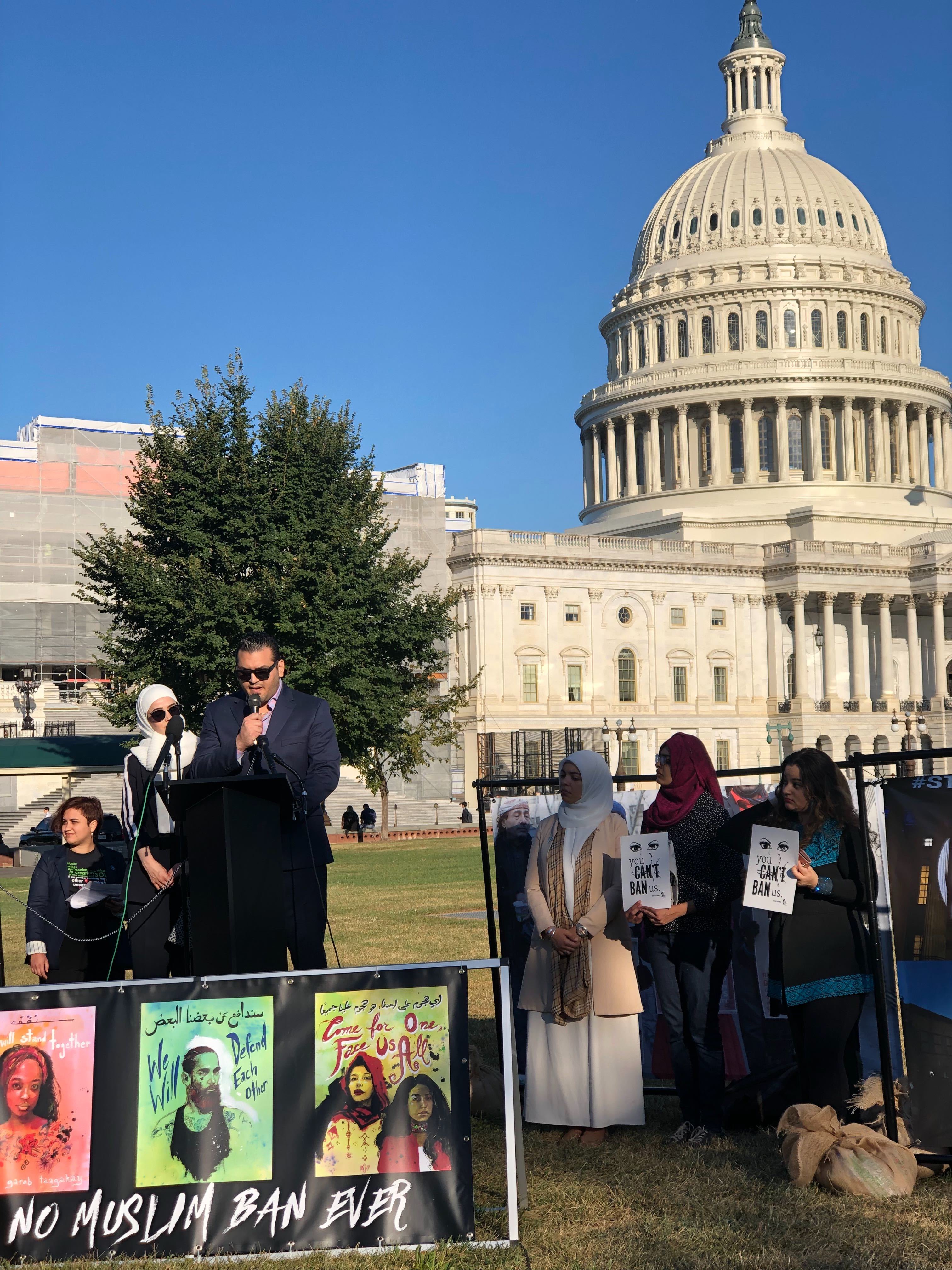
Why, yes – it is a Muslim ban
Editor’s note: CHN Intern Elliot Svirnovskiy is a sophomore and political science major at George Washington University.
United by their shared desperation, they gather to tell their stories. An older woman without any other family discusses waiting for her sister. A couple, only recently reunited after two years, share their struggle. A VA doctor in Iowa – an American citizen – barely chokes out a few sentences about his wife, who is stuck in Iran, before his grief reduces him to tears. Their stories are striking and eerily similar. On Sept. 24, these migrants came before two congressional subcommittees to testify about the injustice they have experienced due to President Trump’s immigration policies.

Immigration advocates rally against the Muslim Ban on September 24th, 2019.
The Trump Administration has argued that its executive order does not specifically target predominantly Muslim countries. During last week’s congressional hearing, Rep. Andy Biggs (R-AZ) and his Republican colleagues argued that the order – officially entitled Protecting the Nation from Foreign Terrorist Entry into the United States — does not specifically target people of one race or religion. Biggs pointed to the inclusion of Venezuela and North Korea in the ban to illustrate his point. On the surface, this argument hardly holds water. When we dig a little deeper, it falls apart completely.
According to the Washington Post and the Monkey Cage, in 2017, 6,643 immigrant’s visas were issued to people born in Iran. That number dropped dramatically in 2018 – only 537 immigrant visas were issued. In October 2017, 1,419 visas were issued to residents in Iran, Syria, Libya, Yemen and Somalia. In January 2018, that number fell to just 69.
While the reduction in visas issued to primarily Muslim states involved in the ban has been well publicized, visa issuance to both North Korea and Venezuela has not dropped. In fact, visa issuance rates from those two countries have been steady throughout the duration of the ban.
It is clear, then, that the executive order is a Muslim Ban.
It is also clear that the ban is woefully unnecessary. Throughout the congressional hearing, GOP congressmen invoked terrorism. Several members discussed the 9/11 attacks. Another congressman spoke about a Lebanese terror cell. Members neglected to recognize that the attackers on 9/11 came primarily from Saudi Arabia. Neither Lebanon – with its predominantly Maronite Christian population — nor Saudi Arabia, with its abundance of oil, are covered by the Muslim ban.
The Trump Administration has employed backwards-thinking and fear-mongering tactics to irreparably damage America’s relationship with a whole host of nations. With the addition of an ineffective waiver process to pacify the courts, the Administration has ripped apart families, incited backlash and prolonged hate.
The Muslim ban stands as a black mark on the history of this country. Thousands have been denied entry. They have missed weddings, birthdays, funerals, childbirths, and graduations. Couples have put off starting families. American residents are afraid to visit their home countries, for fear they will be unable to return.
The NO BAN Act, introduced by Sen. Chris Coons (D-CT) and Rep. Judy Chu (D-CA), limits the President’s ability to prevent refugees or immigrants from coming into the United States. It restricts the use of executive orders to block people from entering this country, and prohibits religious discrimination in immigration-related decisions. In the House, the bill has more than 100 cosponsors. This legislation is an important step toward rebuilding America’s relationship with hundreds of thousands of people around the world.

